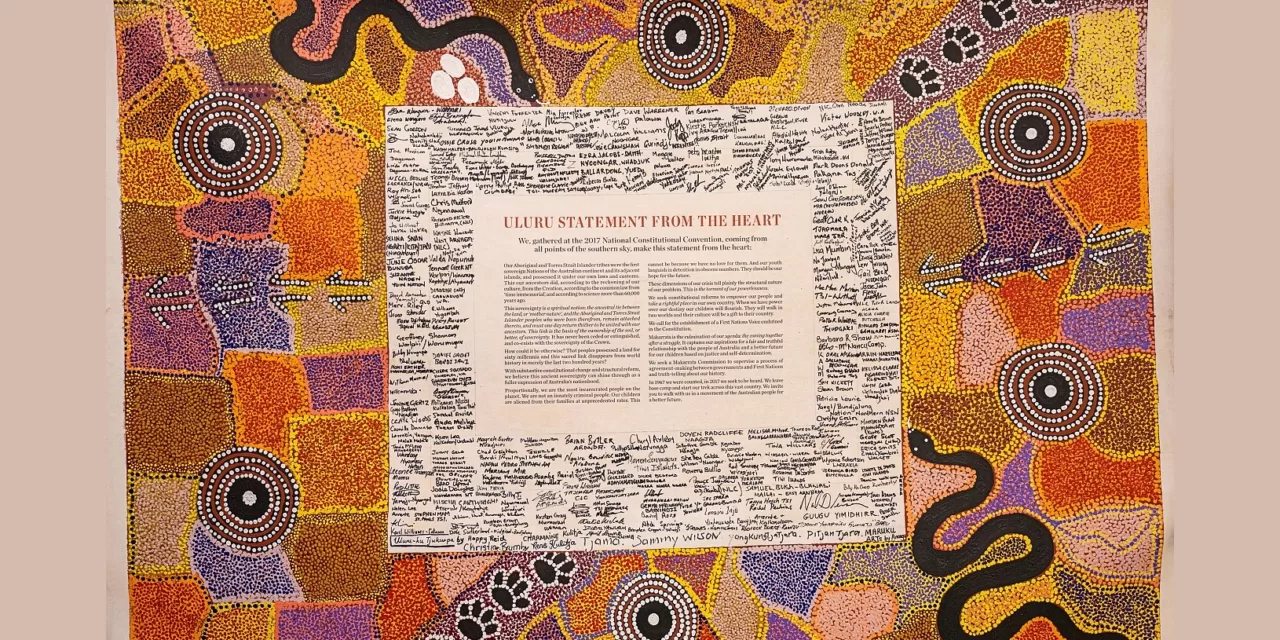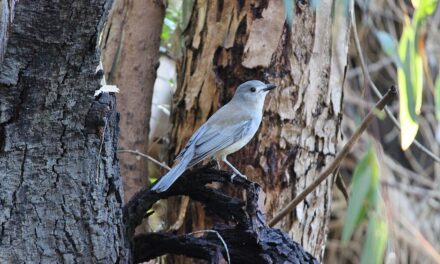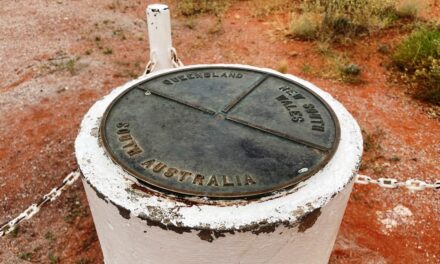Barry Golding
Given the increasingly well documented history of what has occurred in Australia, including here in the Hepburn Shire in southern Dja Dja Wurrung Country, it’s time as a nation and as a community to listen to what First Nations people are politely asking us: to say an emphatic ‘Yes’ to a national Voice to Parliament in the Australian Constitution.
If you have not done so recently, look again at the ‘Uluru Statement from the Heart’. In brief, it is a generous invitation ‘… to the Australian people from First Nations Australians. It asks Australians to walk together to build a better future by establishing a First Nations Voice to Parliament enshrined in the Constitution, and the establishment of a Makarrata Commission for the purpose of treaty making and truth-telling.’ The Voice is the important first step on a well overdue walk forward together towards a national treaty. To vote ‘No’ is to walk backwards.
The Treaty of Waitangi was signed in New Zealand / Aotearoa in 1840, formally acknowledging First Nations people’s civilization, humanity and native title. The very same year Aboriginal people in the then Port Phillip Colony were forced to leave their 23 Nations on Country and huddle for their own safety away from squatter violence in four tiny ‘Aboriginal Protectorates’ , including locally on the Loddon River at Neereman, and from 1841 near Mount Franklin.
The Australian continent had been declared terra nullius, an ‘empty land’ in 1835 by the British Crown, denying people in the 250 separate Australian First Nations humanity or native title, let alone voice. It was another 130 years (1967) before the Australian people overwhelmingly voted in a national Referendum to count Aboriginal and Torres Strait Islander Australians people in a census and have laws made for them.
It was not until the 1992 (Mabo) and 1996 (Wik) decisions for the fundamental land rights of Australian First Nations people to be acknowledged. It is well overdue in 2023 not just to make laws for First Nations people, but to finally acknowledge and respect a right to have their own Voice in national government and laws which impact on them, and for also Australia to finally listen.
Dja Dja Wurrung Country which most of us live and work on was comprehensively named, settled, mapped and cultured before being suddenly and violently unsettled by John Hepburn and other squatters. John Hepburn arrogantly prided himself on the fact that in his lifetime, he never learnt ‘a word of their lingo’.
In 2023, institutions like ‘Protectorates’ which used state sanctioned power to make First People refugees in their own lands would be called refugee or concentration camps. Despite its best Christian and civilizing intentions, the Protectorate process and the widespread state-sanctioned child stealing which followed until very recently might rightly be called genocide and ethnic cleansing respectively.
That some Dja Dja Wurrung people and other First Nations Australians survived and thrive amongst us today, despite all of the above, and still warmly ‘Welcome us to Country’ is disarming. It is time for us as a nation and as a community to acknowledge the truth of what happened here, and finally listen to what is being politely asked of us as in the Uluru Statement of the Heart. Australians pride themselves on giving ‘everyone a fair go’. For all of these reasons, voting ‘Yes’ to The Voice is a simple first step towards a fairer go for First Nations Australians. It is just, essential, timely, and incredibly overdue.
Related Stories:
Barry Golding AM is an Honourary Professor at Federation University and former Chair of the Shire’s Reconcilliation Action Committee.
The Wombat Post is seeking opinions from individuals and groups to canvas the full spectrum of views on the Voice. This piece by Barry Golding was invited by the Editorial Committee of TWP. We have also invited an opinion piece from the Dja Dja Wurrung. We will consider opinion/editorial pieces and letters to the editor submitted by members of our local community. In all cases, our editorial policy applies.





